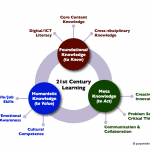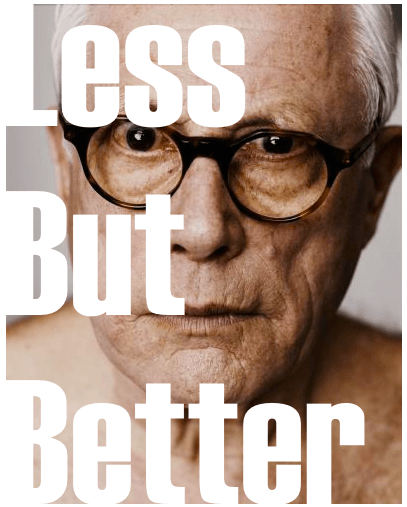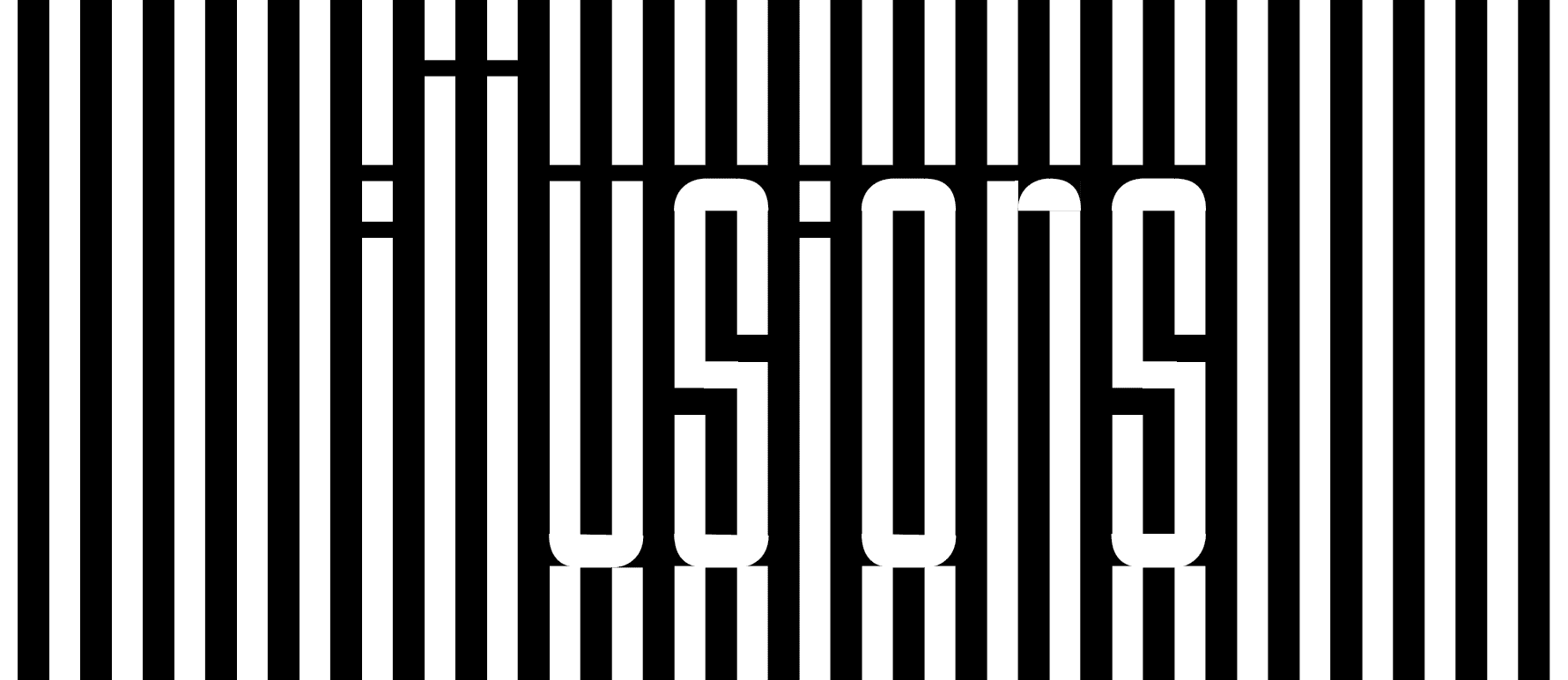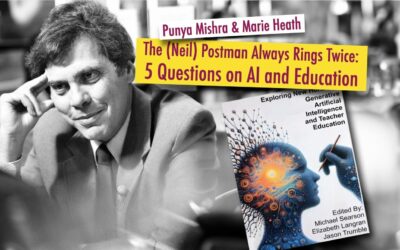
Click on diagram to download a hi-res version
This article has been a while coming… but our paper on an analysis of 21st century learning frameworks and implications for teacher knowledge is finally in print. A previous version of the paper can be found here. Here is the full reference with a link to the article. Citation and abstract appear below…
Kereluik, K., Mishra, P., Fahnoe, C., & Terry, L. (2013). What knowledge is of most worth: Teacher knowledge for 21st century learning. Journal of Digital Learning in Teacher Education, 29(4), 127-140.
This article offers a critical review of the literature on 21st century knowledge frameworks, with a particular focus on what this means for teachers and teacher educators. The authors accomplish this by identifying common themes and knowledge domains in 15 reports, books, and articles that describe the kinds of knowledge that researchers state are integral and important for success in the 21st century. The authors argue that seemingly disparate frameworks converge on three types of knowledge, as necessary for the 21st century: foundational, meta, and humanistic. Although 21st century frameworks are thought to advocate new types of knowledge, little has actually changed in the new century with respect to the overall goals of education. Despite this sense of continuity, significant changes related to how technologies change all three types of knowledge need to be conveyed. The article ends with specific conclusions and recommendations for teacher education.






0 Comments
Trackbacks/Pingbacks